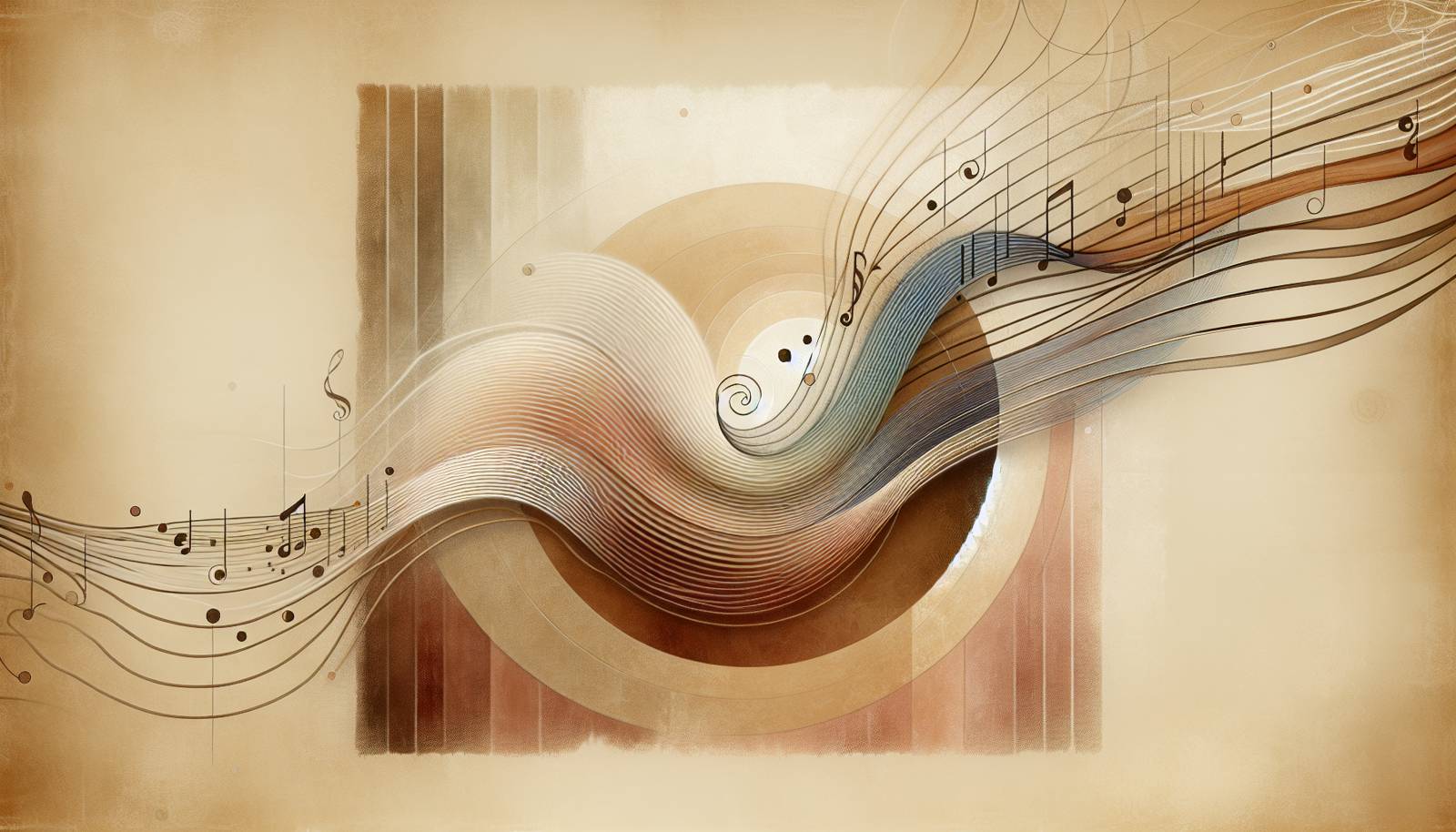
FAQ About The Influence of African American Spirituals on Soul Music

What are African American spirituals?
African American spirituals are religious songs that originated among enslaved African Americans in the United States. These spirituals combine African musical traditions with Christian hymnody, reflecting themes of suffering, hope, and liberation. They were often used as a means of covert communication and were integral to the cultural and religious life of enslaved communities.

How did African American spirituals influence the development of soul music?
African American spirituals influenced soul music by providing foundational themes, vocal techniques, and emotional expression that shaped the genre. Many soul artists drew inspiration from the deep emotional and spiritual content found in spirituals, translating these elements into soulful expressions in their music. The call-and-response pattern, a staple of spirituals, also became a common technique within soul music.

What role did the themes of spirituals play in the evolution of soul music?
The themes of African American spirituals, such as struggle, redemption, and a longing for freedom, played a significant role in the evolution of soul music. These themes resonated in the broader cultural context of the Civil Rights Movement, where soul music served as a voice for equality and freedom. Artists like Sam Cooke and Aretha Franklin infused their music with these powerful themes, reflecting both personal and collective experiences of African Americans.

Can you give examples of specific spirituals that influenced soul music?
Specific spirituals like 'Wade in the Water' and 'Swing Low, Sweet Chariot' have had a lasting impact on soul music. Elements from these songs have been incorporated into soul music through their melodies, rhythms, and spiritual messages. Their ability to convey deep emotional and cultural narratives provided a rich source of inspiration for soul artists and songwriters.

Which soul artists were influenced by African American spirituals?
Many soul artists were heavily influenced by African American spirituals, including Ray Charles, Aretha Franklin, and Sam Cooke. These artists frequently incorporated gospel-inspired vocals and themes into their music, blending the emotional depth of spirituals with contemporary musical styles to create a powerful and resonant sound.

How does the call-and-response form from spirituals appear in soul music?
The call-and-response form, prevalent in African American spirituals, appears in soul music through interactive vocal exchanges. This technique involves a lead singer making a musical statement followed by a responding chorus, creating a dynamic and participatory listening experience. It emphasizes community and shared expression, a defining feature of both spirituals and soul music.

What is the historical context in which African American spirituals developed?
African American spirituals developed during the enslavement of African Americans in the United States from the 17th to the 19th centuries. Under oppressive conditions, enslaved individuals used spirituals as a form of resistance, identity preservation, and a means of covert communication. These songs drew on African rhythms, melodic structures, and Christian themes introduced by missionaries and slaveholders.

How has the legacy of spirituals impacted modern music genres beyond soul?
The legacy of African American spirituals extends beyond soul music into genres such as gospel, rhythm and blues, hip-hop, and rock. The emotive power, vocal styles, and thematic depth inspired by spirituals can be found in various aspects of these music genres. Artists across different genres continue to be influenced by the rich cultural and emotional tapestry that spirituals present.

Why are spirituals considered an important cultural heritage of African American history?
African American spirituals are considered an important cultural heritage due to their role in expressing the resilience, hope, and identity of enslaved African Americans. They are viewed as a unique American art form that captures the spiritual, cultural, and social dynamics of a crucial historical period. Recognizing their contributions helps preserve the history and ongoing impact of these vital expressions of African American life.

What elements define soul music as a genre?
Soul music is defined by its deep emotive content, gospel-inspired vocals, and a blend of rhythm and blues, jazz, and gospel influences. It emphasizes strong vocal performance, heartfelt delivery, and often features elements like a steady backbeat, call-and-response interactions, and horn sections. The genre is distinguished by its focus on the emotional and spiritual experiences of African Americans.

How did the Civil Rights Movement influence the connection between spirituals and soul music?
During the Civil Rights Movement, soul music became a soundtrack for change, much like spirituals provided hope during slavery. Artists used the music to send powerful messages about equality and justice, drawing on the themes of spirituals. Songs by artists such as Nina Simone and Sam Cooke articulated the longing for equal rights and freedom, mirroring the spirituals' themes of liberation and hope.

What is the significance of 'soul' as a concept in soul music?
In soul music, the concept of 'soul' refers to the depth of feeling and authenticity conveyed by the music. It signifies a deep emotional connection to the music's themes, particularly those surrounding love, pain, joy, and faith. This 'soulful' quality originates from the passionate and expressive characteristics found in African American spirituals, often using music as a way to communicate profound personal and collective experiences.

How did gospel music act as a bridge between spirituals and soul music?
Gospel music, which developed from African American spirituals, served as an essential bridge to soul music. Gospel's use of rhythmic freedom, expressive vocals, and emotive storytelling paved the way for soul music. Gospel artists like Sam Cooke transitioned into soul, bringing with them the musical richness and deep emotional expression characteristic of gospel.

What are some lyrical themes common to both spirituals and soul music?
Common lyrical themes in both spirituals and soul music include liberation, love, struggle, perseverance, and faith. Both genres reflect personal and collective journeys, often using music to tell stories of overcoming adversity and seeking freedom. These themes resonate deeply with listeners, offering both inspiration and a connection to broader social and cultural narratives.

Are there modern artists today who draw on the influence of spirituals in their music?
Yes, many modern artists draw inspiration from African American spirituals in their music. Artists such as Beyoncé, John Legend, and Alicia Keys often incorporate elements of spirituals into their work, using themes of hope, freedom, and resilience. These artists continue the tradition of using music to convey powerful messages and emotions, echoing the spirituals' lasting legacy.

What vocal techniques used in soul music are derived from spirituals?
Soul music incorporates several vocal techniques derived from spirituals, including melismatic singing (stretching a single syllable over multiple notes), improvisation, and dynamic shifts in vocal intensity. These techniques provide soul music with its emotional depth and expressiveness, capturing the feelings of transcendence and urgency often found in spirituals.

How did soul music evolve after its initial connection with spirituals?
After its initial connection with spirituals and gospel, soul music evolved by integrating elements of funk, rock, and disco. The genre remained socially and politically conscious, consistently reflecting cultural changes and African American experiences. Artists like Stevie Wonder, Curtis Mayfield, and Marvin Gaye expanded the boundaries of soul, keeping its foundational emotional and spiritual qualities intact while exploring new musical landscapes.

Can you explain the role of rhythm in both spirituals and soul music?
Rhythm plays a crucial role in both spirituals and soul music, providing a driving force and emotional foundation. Spirituals often employed syncopated rhythms and tempo variations to enhance their emotive impact, while soul music adopted these techniques, emphasizing a steady groove and rhythmic complexity. The rhythm in both genres facilitates the emotional engagement and connection vital to their expressive power.

What instrumentation is common in soul music that echoes elements from spirituals?
Soul music commonly features instrumentation that echoes elements from spirituals, such as piano, organ, horns, and rhythm sections (bass and drums). These instruments help create the genre's characteristic sound, blending rhythm and melody to support powerful vocal performances. The use of the organ, for instance, is a direct nod to the traditional church settings where many spirituals were performed.

How did spirituals contribute to the lyrical content of soul music?
Spirituals contributed to the lyrical content of soul music by offering themes of hope, redemption, and resilience rooted in African American experiences. These enduring themes provided soul artists with a profound narrative depth, allowing them to articulate personal and social struggles through a musical medium. As a result, soul music often resonates with a deeply emotional and spiritual essence.
